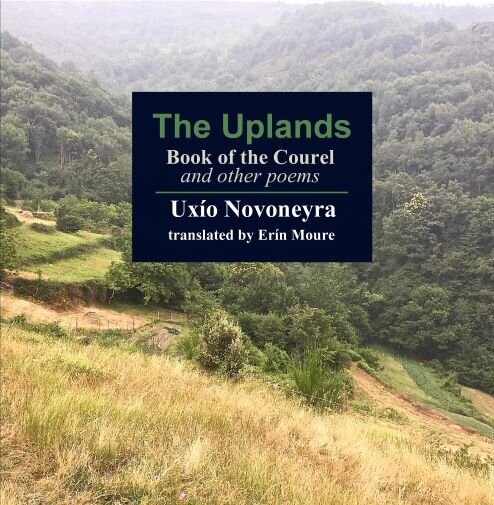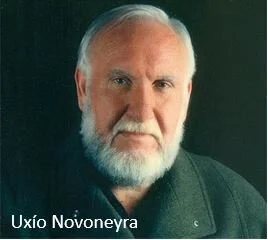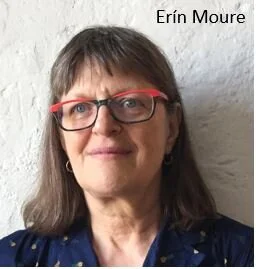The Uplands: Book of the Courel and other poems
The great Uxío Novoneyra, Galician poet and man of the land, stands with Lorca as a poetic visionary of 20th -century Spain. He was devoted to his region, the mountainous Courel, to its variant of Galician and to its names and ways, as well as to Galician culture as a whole, to the expression of all minority cultures and to freedom from imperialism, war, and economic expansionism. His œuvre —rich in sound, syllable, silence and gesture— reveals him as an eco-poet before the concept existed. Os Eidos [The Uplands], first published in 1955 and still in print today, is his monumental work.
PRAISE FOR THE UPLANDS: BOOK OF THE COUREL AND OTHER POEMS
Novoneyra is a caesura where the world suspends its pulsing din and the world trembles and glows like a star. With him, we are a people who stride onward, and our striving is never in vain.
—Chus Pato, author of Secession
This is a magical book that conjures across seasons and seasonal creatures, vegetal growth and ashes. And especially, today, the draw to "head alone to an upland where I cannot be seen." There is no way you could have predicted it would be such a timely book, conjuring readers to the open air, sparsely populated, where risk of infection is slight. Or rather, could not have predicted the sheer scope of its timeliness, this moment when the full human population of the earth is suddenly sensitized to the movements of molecules in air, a sensitivity previously reserved for allergics, asthmatics, and other immune compromised beings, such as Novoneyra himself and his translator.
—Cheryl Emerson, SUNY Buffalo
ABOUT THE AUTHOR
Uxío Novoneyra (1930-1999) was one of the greatest Galician poets of the 20th century. Steadfast in defense of his Galician language and culture in the face of the homogenizing forces of centralist Spain, he produced a poetic œuvre rich in sound, syllable, silence, and gesture. He was a poet of Courelian Galician, a man of a remote mountain heritage and accent shaped over thousands of years before it arrived in his chest and mouth and on his tongue. Influenced by the medieval Iberian troubadours and by poetries from Persia and China to the Caribbean, through the Old Testament bumping against the Beats, Novoneyra was devoted to language and to all that speaks outside language but that language yearns to bring into mention. Having lived the brutal decades of Francoist dictatorship in Spain, he spoke always on behalf of freedom and the rights of peoples. He saw popular culture and language as essential to any avant-garde. He was a poet of the Land, of the equality of grasses and human being, of the weather, of the stones. Today we’d call him an eco-poet. He was a poet of silence, of re-envisioning; his classic The Uplands (1955, still in print) was one he wrote through as a life-work. Virtually unknown in the English-speaking world, Novoneyra is a towering presence, even twenty years after his death, in Galicia. His spirit of defiance and of love is still alive in Galician poetry today.
ABOUT THE TRANSLATOR
Erín Moure has published over forty books of poetry, essays, memoir, a well as translations and co-translations from Galician, French, Portuguese, and Spanish into English. Between 2007 and 2016, she translated renowned poet Chus Pato’s pentalogy Delve (Decrúa); her most recent translations are of the Brazilian Wilson Bueno’s Paraguayan Sea (Nightboat, 2017), Galician poet Lupe Gómez’s Camouflage (Circum-ference, 2019) and, with Roman Ivashkiv, Ukrainian poet Yuri Izdryk’s Smokes (Lost Horse, 2019).



Photo credit: Karis Shearer

